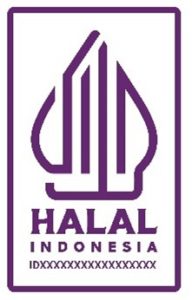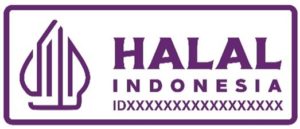The Indonesian government has implemented mandatory halal certification to protect its predominantly Muslim population. To ensure halal standards, the government has issued several key regulations, including Law No. 33 of 2014 concerning Halal Product Assurance, Government Regulation No. 42 of 2024 concerning Implementation of Halal Product Assurance, and specifically for imported products, Decision of the Head of Halal Product Assurance Agency (BPJPH) No. 90 of 2023 concerning Procedures of Implementing Foreign Halal Certificate Registration.
Compliance Deadlines
The government has established statutory deadlines for products and services to obtain halal certification under Government Regulation No. 39 of 2021 concerning Implementation of Halal Product Assurance. The deadline for imported food, beverages, and slaughtering products and services to comply with halal certification was extended to October 17, 2026 (from October 17, 2024, originally) with the issuance of Government Regulation No. 42 of 2024.
Other product categories have varying deadlines:
- October 17, 2026: Natural drugs, quasi-drugs, health supplements, cosmetics, chemical products, genetically engineered products, clothing and accessories, household supplies, prayer equipment, stationery, and class A medical devices
- October 17, 2029: Over-the-counter drugs and class B medical devices
- October 17, 2034: Prescription drugs (excluding psychotropics) and class C medical devices
SHLN Registration for Imports
To simplify the halal certification process for imported products, BPJPH offers a foreign halal certificate registration (Registrasi Sertifikat Halal Luar Negeri, or SHLN registration) pathway. This allows eligible imported products to obtain halal certification without filing the standard national halal certification procedure.
Under the Halal Law, imported products are not required to apply for national halal certification if their halal certificate is issued by a foreign halal institution that has entered into a mutual recognition agreement (MRA) with BPJPH.
Currently, 89 foreign halal institutions from countries (including the United States, South Korea, Thailand, and the United Kingdom) have entered into MRAs with BPJPH, with an additional 29 institutions in the process. These agreements cover product categories including food, beverages, cosmetics, drugs, chemical products, and others. The list of registered foreign halal institutions and product categories is updated regularly based on new agreements.
Application Process
SHLN registration is filed electronically through the Halal Information System (SIHALAL) by the importer or their official representative in Indonesia. Required documents include:
- Application letter signed by the importer
- Name and address of both the importer and the foreign manufacturer
- Product HS code
- Letter of appointment
- Copy of the importer’s business license
- Apostilled foreign halal certificate from an MRA-recognized institution
Timeline and Fees
After the required documents are submitted, BPJPH will conduct a formality examination within five working days of the date the application is received (with up to five additional days allowed if documents are incomplete). The next step is the substantive examination, which takes five working days after all documents are complete.
In total, the maximum processing time is 20 working days from the date the application is received.
After approval, BPJPH issues a payment order, which must be paid within one week. Following payment, BPJPH issues the registration number through SIHALAL. The registration remains valid for the same period as the underlying foreign halal certificate.
Labeling Requirements
Once registered, products must display the registration number near the halal label. BPJPH permits the following labeling options:
- Indonesian halal logo only (vertical or horizontal)
 |
 |
- Indonesian halal logo combined with a foreign halal institution logo (vertical or horizontal)
Compliance and Enforcement
The regulations establish comprehensive compliance requirements for business actors, covering everything from maintaining accurate information and separating halal and non-halal operations to proper labeling and timely renewal of certificates.
Noncompliance can result in progressive administrative sanctions, including:
- Written warnings for all violations;
- Administrative fines for specific violations, including failure to maintain halal standards, improper labeling, and failure to register or renew certificates;
- Revocation of halal certificates for certain types of violations; and
- Withdrawal of goods from circulation.
Businesses may file objections to administrative fines, certificate revocations, or product withdrawals within five working days of the sanction issuance. BPJPH must respond to objections within five working days.
Strategic Considerations
For companies importing halal products into Indonesia, SHLN registration offers a significantly streamlined and more cost-effective path to compliance compared to full national certification. However, eligibility depends entirely on whether the foreign certifying institution has an MRA with BPJPH. Companies should verify their certifying institution’s status early in their market entry planning.
Given the approaching 2026 deadline for many product categories, businesses should begin the registration process well in advance to ensure uninterrupted market access. The 20-day maximum processing time, while relatively quick, should be factored into supply chain and launch timelines.


